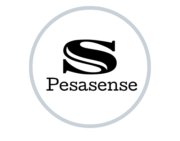“ Price is what you pay. Value is what you get.“
Warren Buffet
Let us delve into Motor insurance in the context of non-commercial vehicles aka personal vehicles. If you own or drive a vehicle, you most likely are familiar with motor insurance. It is a requirement by law that every vehicle on the road must have valid motor insurance.
There are 2 types of insurance that are available in the Kenyan Market, Third-party insurance and Comprehensive insurance.
Third-Party Motor insurance
In Kenya, if you own a vehicle at the very least you are required to take out a Third-Party insurance cover for your vehicle. The law that guides this is, Insurance (Motor Vehicles Third-Party Risks) Act Cap 405, Laws of Kenya.
Clause 5 part B of the Act provides that the Third Party Insurance:
Insures such person, persons or classes of persons as may be specified in the policy in respect of any liability which may be incurred by him or them in respect of the death of, or bodily injury to, any person caused by or arising out of the use of the vehicle on a road: Provided that a policy in terms of this section shall not be required to.
In summary, Third Party Insurance covers the third parties to an accident that results in death and bodily injury, as well as damage to their vehicle.
Comprehensive Motor insurance
Comprehensive insurance is all-inclusive where both the third party and the owner of the vehicle in the case of a loss or injury are both covered.
A sample of what is usually covered under Comprehensive Motor insurance
- Death to self and third parties
- Injury to self and third parties
- Accidents & damage to vehicles
- Theft to Motor Vehicles
- Third-party property damage
There are enhancements to comprehensive insurance and this varies from one insurance company to another. Some of these perks may be at no extra cost. An example includes events such as damage to vehicles through special perils such as; Riots and Civil unrest, Earthquakes, Acts of Terrorism, and floods.

Some enhancements can be obtained at a fee. These include
1. Car hires while your vehicle is being repaired.
The insurance can issue the insured party with a courtesy car for a period. I have come across 10 days.
2. Cover for windscreen damage.
The windscreen is sometimes covered separately, especially where it is the only part of the vehicle that is damaged during and an accident.
3. Cover for theft of music system in the car.
As the cover suggests this is for the car music system. Usually, the valuation will have been done during the annual valuation to determine the value of any claim payable.
4. Towing fees.
This is given as an additional service although, it can be purchased through companies that offer separate breakdown covers such as Auto Assured and Automobile Association (AA)
Because some of us may not be too familiar with some of the insurance terms, let’s define a couple of them:
a. Excess
In motor insurance, this is the money you pay for you to access your money through a claim, in the event of a loss. While it acts as a deterrent against frivolous claims, it also leaves room for the premium paid to cover larger and more expensive, losses.
Where the payment for the damage to the vehicle is less than or equal to the excess payable to the insurance then, it may be wiser to repair the damage without raising a claim.
In some way, it helps in stabilizing the premium rates.
b. Excess protector
The Excess payable can be inhibitive, and some insurance firms will provide an enhancement to the motor insurance to assist with meeting the excess. So in the event of a claim you will not be required to pay the excess if you take out the excess protector. This additional cover usually be subject to meeting set conditions such as annual car valuation.
c. Assessment
Once damage occurs to the vehicle occurs the insurance will usually need to review the damage and put a figure on what will need to be done to carry out the repairs. This exercise is carried out by insurance assessors. Of course, in the event of an accident, it will be important to involve the traffic police, as a matter of procedure. I cannot overemphasize the importance of you complying with the policy document requirements, it will certainly save you a myriad of headaches.
d. Vehicle valuation
This is an exercise that should be ideally done annually, before renewing your premium payments. Vehicle valuation is done to determine the value or worth of the car.
I have a story about being hit by a bus and my vehicle being damaged on one whole side of it! Mercifully no one was injured but I was quite shaken. Had it not been for a police officer who witnessed the whole incident, it would have been a nightmare for me. He took charge by calling it in at the police station and confirming the bus to be at fault.
The insurance for the bus was going to expire 3 days from the accident date! Yeah, talk about dicey! but my insurance agreed to take care of the damages and claim from the bus’s insurance firm. Eventually, I was sorted, but boy could it have easily escalated to something else.
The moral of the story, please read the fine print in your policy and make sure you shop around for a solid insurance firm before engaging. Also remember while insurance is not saving or investing it is necessary to take out the best you can afford to mitigate against loss.

